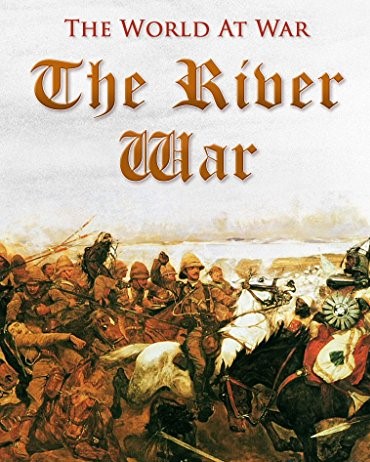Description
“The River War: An Account of the Reconquest of the Sudan” is a historical narrative by Winston Churchill detailing the British campaign to recapture Sudan from Mahdist forces at the end of the 19th century. The book was first published in 1899 and offers a compelling blend of military history, personal observation, and political analysis. Written by a young Churchill, who later became one of the most significant figures of the 20th century, “The River War” provides an account of a pivotal campaign and insights into the early development of Churchill’s thoughts on war, politics, and leadership.
Overview: In “The River War,” Churchill chronicles the events leading up to and during the British-led military expedition to reclaim Sudan from the Mahdist forces that had taken control following General Gordon’s death at Khartoum. The narrative spans from the late 1880s, with the initial British defeats and the subsequent rise of the Mahdist state, to the decisive Battle of Omdurman in 1898, which marked the culmination of the reconquest efforts.
Historical Context: The book is set against the backdrop of late Victorian imperialism, highlighting the geopolitical significance of the Sudanese region, particularly British interests in Egypt and the Suez Canal. Churchill delves into the complexities of colonial politics, the motivations behind British military interventions, and the interplay of various political and military leaders involved in the campaign.
Key Themes and Analysis:
- Military Strategy and Tactics: Churchill provides detailed descriptions of the military strategies and tactics employed by the British and Mahdist forces. His analysis includes the logistical challenges of conducting a campaign in the harsh Sudanese environment and the innovations in military technology and organization that played crucial roles in the British victory.
- Leadership and Character: Through his narrative, Churchill examines the leadership qualities of key figures such as General Kitchener, who led the British forces, and the Mahdi, the spiritual and military leader of the Sudanese resistance. Churchill’s observations reflect his developing views on leadership and command, offering a unique perspective on the qualities he admired and sought to emulate.
- Cultural and Social Observations: The book also includes Churchill’s reflections on Sudanese culture, society, and the impact of colonialism. While his views reflect the era’s imperial mindset, they provide valuable insights into the interactions between British forces and the local population and the broader implications of the reconquest for Sudanese society.
- Personal Experience: As a young officer participating in the campaign, Churchill’s firsthand experiences and observations add a personal dimension to the historical account. His vivid descriptions of battles, the landscape, and daily life as a soldier lend authenticity and immediacy to the narrative.





Adeola –
“Winston Churchill’s ‘The River War’ is an absolute masterpiece that combines historical insight with vivid storytelling. Churchill’s firsthand account of the British campaign in the Sudan is both informative and captivating, offering a nuanced perspective on the complexities of colonialism and warfare. His eloquent prose brings the characters and events to life, making this book a must-read for anyone interested in military history or political intrigue.
Clement –
I was thoroughly impressed by ‘The River War’ by Winston Churchill. The depth of research and attention to detail in this book is remarkable. Churchill provides a comprehensive overview of the Sudanese conflict, from its historical origins to the climactic battles along the Nile. His analysis of military strategy and tactics is insightful, and his descriptions of the landscape and culture of the region are vivid and evocative.
Gbenga –
‘The River War’ by Winston Churchill is a gripping account of one of the most fascinating chapters in British imperial history. Churchill’s narrative style is engaging and immersive, drawing readers into the heart of the action as British forces navigate the treacherous waters of the Nile and confront the formidable challenges of desert warfare. His observations on the clash of civilizations and the dynamics of power are as relevant today as they were a century ago.